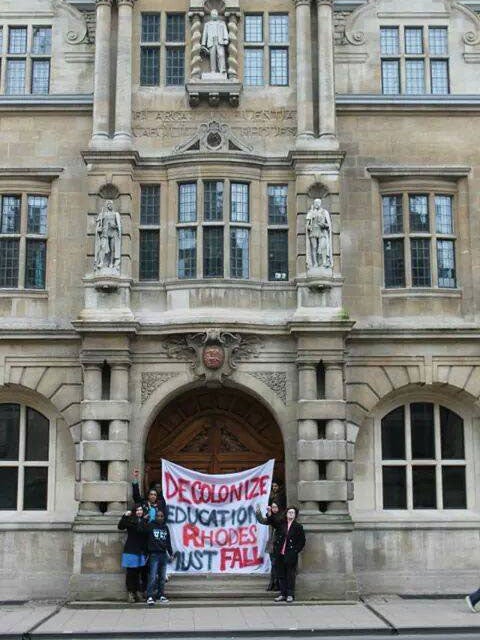The Independent's journalism is supported by our readers. When you purchase through links on our site, we may earn commission.
Oxford students call for 'racist' statue of Cecil Rhodes to be pulled down
Rhodes who was an advocate of British imperialism

Students at Oxford University are calling for a statue which they claim represents racism and colonialism to be removed.
The statue of Cecil Rhodes, who was the founder of the South African territory of Rhodesia, is over 100 years old and sits in a Grade II listed building at Oriel College.
The group, called Oxford University’s Rhodes Must Fall, wants the institution to echo action taken by the University of Cape Town after it removed a statue of the British businessman and South African politician in April following a successful campaign by students.
Annie Teriba, a member of Rhodes Must Fall and a second year history and politics student told Sky News : “It's a reminder, more than being a statue, that when this university was built it wasn't built with us in mind it was built off the back of exploiting labour and the colonial project.”
Rhodes, who was a student at Oriel College in 1873, is the benefactor of the Rhodes Scholarship - an international study enabling international students to study at the University of Oxford.
More than 7000 people have benefited from the scholarship including Australian Prime Minister Tony Abbot and former President of the United States Bill Clinton.
Despite the financial contributions gained from Rhodes’ estate, many say that this cannot redeem his legacy as a ruthless pursuer of the British Empire.
Rhodes made his fortune in the Kimberly diamond mines and took control of Rhodesia (now Zimbabwe) under the auspices of the British South Africa Company.
He is quoted as saying that the British were the "finest race in the world" and "the more world we inhabit the better it is for the human race".
A spokesperson for Oriel College told the Independent: 'When Cecil Rhodes died in 1902 he left 2 per cent of his estate to Oriel College. His legacy helped to fund the construction of a new building, opened in 1911. The building frontage included a statue commemorating his benefaction.
"Now, over a century after the building was constructed, Rhodes is thought of very differently. The College draws a clear line between acknowledging the historical fact of Rhodes’ donation and in any way condoning his political views. Oriel College is committed to being at the forefront of the drive to make Oxford University more diverse and inclusive of people from all backgrounds."
Subscribe to Independent Premium to bookmark this article
Want to bookmark your favourite articles and stories to read or reference later? Start your Independent Premium subscription today.

Join our commenting forum
Join thought-provoking conversations, follow other Independent readers and see their replies